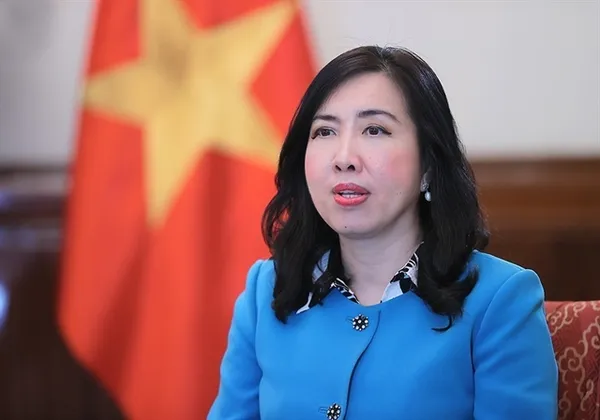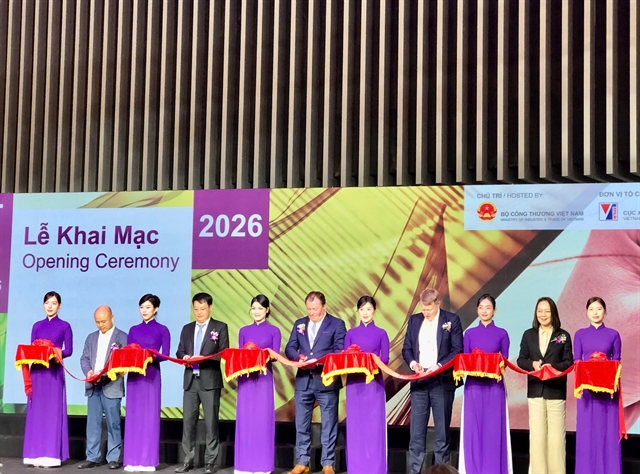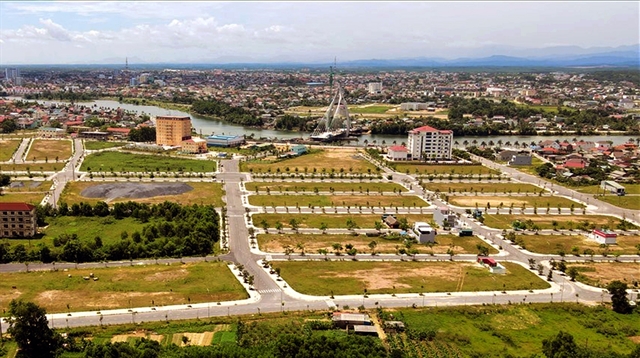 Opinion
Opinion

 |
| Đào Trung Chính, Director of the Department of Land Resources Planning and Development. — VNA/VNS Photo |
Could you please tell us how amending the Land Law will help the process of solving difficulties and challenges in the real estate market and the lives of the people?
The draft Land Law (amended) is constructed based on a review and summary of the practical implementation of legal policies on land over the past period. The proposed amendments in the draft focus on issues related to land allocation, land leasing, compensation, land clearance, policies facilitating stable business operations for enterprises in cases of land allocation and annual land leasing payments, financial mechanisms, funds, land prices, regulations on decentralisation, authorisation, administrative procedure reform.
Along with the amendment of the Land Law, the Housing Law and the Real Estate Business Law have also been revised and approved by the National Assembly. These are legal foundations directly related to the real estate market. The amendments to these laws aim to address difficulties and obstacles, promoting the stable, safe, healthy, and sustainable development of the real estate market. The adaptation of the draft law is expected to create a legal framework to more effectively leverage land resources, better meeting practical requirements.
However, the process of reviewing and finalising important policy options, incorporating and explaining all concerning opinions, and the entire draft law still requires additional time to ensure the best possible quality. With the crucial role of the Land Law, the quality of the draft law is a top priority to avoid potential impacts and repercussions on economic, social activities, and people's lives after its enactment. Draft decrees and guidance documents need additional time for comprehensive refinement, ensuring they become effective simultaneously with the enforcement of the law, especially regarding new content on land prices, land use rights certificates, land allocation, land leasing, etc., which require detailed provisions for the law's policies to be integrated into daily life.
How do you assess the process of collecting opinions from voters and the general public regarding the current draft of the amended Land Law?
In the process of drafting the amended Land Law, the drafting authority has summarised and evaluated the Land Law of 2013, providing an impact assessment report on the economic, social, and citizen-related effects of the proposed policy amendments. This was done to suggest the most suitable options, ensuring practical feasibility and contributing to the country's economic development.
During the collection of opinions from voters and the general public nationwide, the majority of concerns were related to land planning, land use plans, land reclamation, compensation policies, support and resettlement, land allocation, land leasing, change of land use purpose; financial mechanisms and land policies, land prices; land registration, issuance of land use certificates, administrative procedures, land data, and information; commercialisation of annual land lease rights and options for payment methods; regulations and management of various types of land use. This comprehensive public interest in the Land Law indicates the societal concern and emphasises the crucial role of the Land Law in economic and social domains.
At the sixth session of the 15th National Assembly, the draft amended Land Law was deferred for further study, adjustment, and review. What do the drafting committee and the Ministry of Natural Resources and Environment need to do to ensure the approval of the draft Land Law in the upcoming session?
The amendment and supplementation of provisions in the Land Law, along with the addition of new policies to adjust certain emerging issues in practice, are deemed necessary to meet the requirements of efficiently managing and utilising resources, particularly land resources, for economic and social development. This is essential for ensuring national defence, security, and the rights and interests of citizens and businesses.
In the future, the Ministry of Natural Resources and Environment will proactively coordinate with relevant ministries, sectors, and parliamentary agencies to review policies and laws that have not been harmonised and synchronised with the Land Law, especially major and complex policy issues, before presenting them to the National Assembly for approval at the upcoming sessions. — VNS




